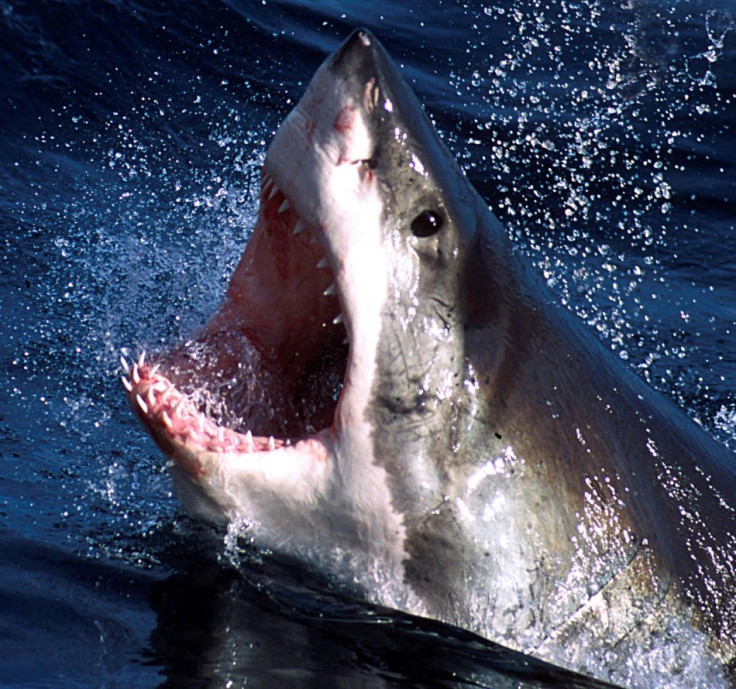Lydia the One-Tonne Great White Shark Heading to Britain on Epic Journey

A great white shark called Lydia is expected to become the first of her species to be documented crossing from one side of the Atlantic to the other.
The satellite-tagged shark, which is 15ft long and weighs 2,000Ib, has been spotted 1,000 miles off the coast of Cornwall and Ireland. If she continues along her trajectory, she could reach the UK within three days.
Lydia was first tagged off the coast of Jacksonville, Florida, in March 2013 as part of the Ocearch shark project, which is tracking 70 sharks. Since then, she has travelled 19,000 miles (30,500km) and is 3,000 miles away from where she was first tracked.
In 72 hours, Lydia has swum 380 miles and is near the Mid-Atlantic Ridge.
Dr Gregory Skomal, a senior fisheries biologist with Massachusetts Marine Fisheries, told BBC News: "No white sharks have crossed from west to east or east to west.
"Although Lydia is closer to Europe than North America, she technically does not cross the Atlantic until she crosses the Mid-Atlantic Ridge, which she has yet to do."
"She would be the first documented white shark to cross into the eastern Atlantic. We have no idea how far she will go, but Europe, the Med, and the coast of Africa are all feasible."
Lydia was hoisted from the water in order to fit the tracking device, using a 75,000Ib (34,000kg) hydraulic platform. The equipment was operated from the research vessel MV Ocearch.
The project aims to "generate previously unattainable data on the movement, biology and health of sharks to protect their future while enhancing public safety and education".
Great white sharks are known for long-distance migrations. In 2003 a great white nicknamed Nicole completed a return journey from South Africa to Australia - a distance of around 12,400 miles.
Traditionally, great whites are found along the coastlines of South Africa, Australia and New Zealand. They are also found in California and Alaska, as well as the east coast of the US.
They reach maturity at around 15 years of age and are known to live as long as 70 years or more, which makes them the longest-living cartilaginous fish.
A great white can consume around 11 tonnes of food per year and has no known natural predators.
Although Steven Spielberg depicted the species as a maneater, great whites do not favour human meat. Despite this, great whites have the largest number of fatal unprovoked attacks on humans out of all types of shark.
© Copyright IBTimes 2025. All rights reserved.






















